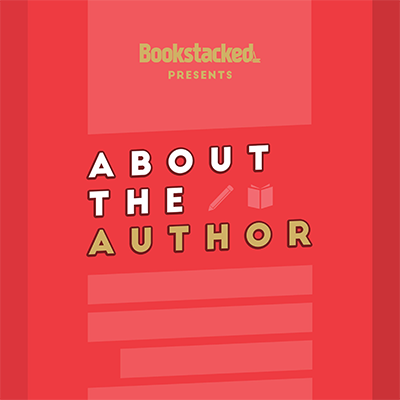Harry Potter inspired Talia Franks to write. Since childhood, they were convinced that writing was the best fit for them.
As the creator of the boy wizard, J.K. Rowling had a lot to do with that.
“I’d been really inspired by J.K. Rowling,” Franks, who is non-binary, said. “I wanted to write fantasy stories and always sort of dreamed that I would come up with something as brilliant as Harry Potter.”
Rowling’s Wizarding World didn’t only bring a love for writing to Franks. It brought a community — friends who could share in fanfiction, midnight releases, trivia nights, Wizard Rock and social activism. It taught important lessons too. And for countless trans and queer readers, the books brought comfort in knowing that it’s okay to be outside the norm. Franks believes that Harry Potter has saved many lives.
“We looked into the series and found so much joy in it,” they said. “We found so many important life lessons … It was really foundational for me.”
Franks said their Harry Potter experience underlined an important reality: there’s power in words.
But just as Rowling’s words conjured magic into the lives of millions of readers across the world, her recent rhetoric surrounding gender identity has become a source of turmoil for many in the LGBTQ+ community, especially those within the Harry Potter fandom.
“The way her words once helped save and were a balm for our hurt is now what’s hurting us.”
“It has been so damaging to the trans and queer community, it’s been really hard,” Franks said. “The way her words once helped save and were a balm for our hurt is now what’s hurting us.”
While Rowling still has many backers, countless others are turning their support away from the author and toward fellow fans, especially trans and non-binary members of the community who are in pain. The focus has shifted away from Fantastic Beasts and theme park rides to allyship and activism. The transition hasn’t been an easy one, but it has been necessary according to many in the Harry Potter fan community.
Taking a stance
On July 1, online fan outlets united together to publish a statement condemning Rowling’s comments.
“Although it is difficult to speak out against someone whose work we have so long admired, it would be wrong not to use our platforms to counteract the harm she has caused,” a portion of the statement reads.
The statement’s publication was a big moment for websites like MuggleNet and The Leaky Cauldron, two of the most-recognized Harry Potter destinations on the internet. It was, in many ways, a formal divorce from the author. In conjunction with publishing the statement, The Leaky Cauldron instituted a policy that limits their coverage on Rowling’s endeavors outside of the Wizarding World. MuggleNet made a similar commitment.
“We all knew that we, as fan sites, would have to say something,” said Melissa Anelli, founder of The Leaky Cauldron. Anelli, who also runs Harry Potter fan convention LeakyCon, penned a book in 2008 about the Harry Potter fandom, for which Rowling wrote the forward. “Everybody was going to have to make their stance clear.”
The collaboration brought the fan sites together for the first time in years. GLAAD and The Trevor Project assisted in reviewing the statement’s wording, according to Anelli. (“They were down to the crumbs and periods helping us.”) Other fan outlets, like HPANA, jumped on board to show their support too. While the fan sites don’t claim to be the voice of the entire fandom, they still felt a responsibility to speak out.
The response to the statement has been largely positive, but the sites faced pushback from many of Rowling’s supporters. That was especially true for the staff at MuggleNet. Calls for shutting the website down and even violent messages flooded the inboxes of volunteer staff members in the days following, according to MuggleNet’s creative and marketing director Kat Miller, as well as MuggleNet’s managing editor Felicia Grady. Things became especially tense after MuggleNet founder Emerson Spartz tweeted in support of Rowling. Spartz, while founding the site in 1999 and managing it for more than a decade, left MuggleNet several years ago and has had little involvement in the fandom since. MuggleNet has been women-led since 2017.
Despite the intense reactions, MuggleNet never doubted the importance of the statement.
“Everybody deserves to feel safe,” Miller said.
Support for the trans community has come from far beyond the fan sites. Former and current Wizarding World actors have shown public support for transgender people since Rowling surfaced her views. Daniel Radcliffe, Emma Watson, Rupert Grint and Eddie Redmayne all spoke up. There were many others too.
Statements like these are heartening according to Jackson Bird, YouTuber and author of transgender memoir Sorted: Growing Up, Coming Out, and Finding My Place. A long-time Harry Potter fan, he said he was grateful to find support within the fandom.
“Not too long ago when I was considering coming out as trans, I didn’t know if I would still be welcome in the community,” Bird said. “But times have changed so much that now everyone’s coming out in support of trans people … It’s really cool to see them make that a priority.”
An opportunity to awaken
Bird stressed that the Harry Potter fandom isn’t perfect and that there’s still a lot of work to be done. But he hopes most will use this moment as an opportunity to learn. He believes Rowling’s words are forcing people to confront hate in otherwise overlooked places, including transphobia within the LGBTQ+ community.

“A lot of people are realizing that this evil lurks in even the most ordinary or unexpected of places,” he said. “I think it’s a good opportunity for a lot of people to awaken to that and to be able to interrogate some of their own biases and just learn more about trans peoples’ actual lived experiences.”
Dr. Sarah Steelman, a marriage and family therapist, agrees that education is key in combating Rowling’s comments. She believes Rowling’s tweets and writings have caused an uptick in transphobic ideology, especially on the internet. Steelman says most of her clients are transgender and that there’s growing anxiety even among those outside of the fandom.
“I have noticed actively how harmful it has been,” she said. “(With) people that were casually interested in the series, I talked about it in almost every session I had for the week, two weeks following.”
Steelman, who identifies as queer, emphasized that listening to trans people is important in educating oneself. If someone points out offensive behavior, don’t push back. Listen and learn. Do research. Don’t minimize the pain felt by others.
Even without Rowling’s comments, transgender men and women already face a wide breadth of issues. Discrimination in employment, housing and education are common problems, as is social isolation. Many face violence too. All of this is even more true for transgender women and transgender people of color, according to GLAAD.
“They’ll tell you that they’ve had to reconcile with this for years …”
Acknowledging the struggles of other minority groups should be part of the learning process too, Steelman said. She pointed to criticisms of racism in the Harry Potter series and encourages fans to listen to voices from people of color.
“They’ll tell you that they’ve had to reconcile with this for years,” she said. “The books are infused with these things and it’s subtle sometimes, but other times it’s not subtle.”
Bird noted, “Even in the more progressive, inclusive sides of the community, we’ve got a lot of issues on race that we still need to get better at.”
Figuring it out
So what does this mean for the future of the Harry Potter fandom? It’s difficult to say. The community isn’t united on the issue — and there are many who support and “stand by” Rowling. The dust is still settling and the outcome is likely to be different for everyone.
Steelman thinks the friendships forged within the fandom will continue, but there may be those who need to step away for a while.
“It’s hard to know personally where a lot of us will land because this is still a shock.”
“It’s hard to know personally where a lot of us will land because this is still a shock,” she said. “We might be seeing a lot of very large steps back from a lot of our friends or a lot of people we know in the community. And that might be something that stays — they might continue to be at arm’s length. But it also might be something where … they’re not gonna be fatigued anymore, and they’ll be able to figure out, in the long run, where their relationship with the fandom and with Harry Potter falls.”
Years of questioning the longevity of the Harry Potter fandom seemed silly until recently, Bird said. For the first time, he wondered how and if the community would survive. Would Rowling herself be its end? He hopes that doesn’t happen.
“I think the folks who have found their own little pockets and corners of the fandom … they’ve grown so far beyond Harry Potter in many ways and have created friendships that have gone so deep,” he said.
In the meantime, Steelman and Bird have suggested that fans cease supporting Rowling financially and participate in simple acts of allyship like unfollowing Rowling’s social handles. Steelman’s also learning to embrace diverse creators within the fandom (she recommends following Black Girls Create’s #WizardTeam).
At MuggleNet, Grady said the ordeal has been a reckoning for fans, but she’s optimistic about the future. She and Miller are devoted to bringing the community together after so much division. Rowling’s comments, along with the pandemic and renewed interest in racial injustice, have the fan site focusing on how it can be more welcoming of diverse fans, even internally.
“We’d like to work with more voices within the fandom that are different from our own, different perspectives,” Grady said. “As a whole, this will hopefully encourage more fandom entities to continue to come together and work together and support each other rather than being separate.”
The statement was just a start, according to Anelli. The fan sites are already back at it again, this time launching a fundraiser for trans causes on Harry Potter’s and J.K. Rowling’s birthday. All profits will be split between three charities. At least 15 fandom entities are involved.
“Our fandom doesn’t need her.”
As for Franks, they admit Harry Potter will never be the same. They say they’ll probably re-read the books. Writing fanfiction will still be part of their life too. So will the activism they found in the fandom.
But whatever that future holds, they don’t see Rowling in the picture.
“I don’t want the fandom to disappear because I’ve been a part of it for so long and I have so many friends within it,” Franks said. “Our fandom doesn’t need her. It’s always been a bottom-up kind of fandom rather than top-down.”
To learn more about the transgender community, its relationship with Harry Potter and how to be an ally, we recommend the following resources:
- A guide to being an ally to transgender and nonbinary youth from The Trevor Project
- Transgender resources from GLAAD
- Support hotlines and resources for reporting hate compiled by the National Center for Transgender Equality
- ‘Making the Choice Between What is Right and What is Easy: Speaking Out against J.K. Rowling’s Transphobic Remarks‘ by Sarah Steelman
- ‘”Harry Potter” Helped Me Come Out as Trans, But J.K. Rowling Disappointed Me’ by Jackson Bird (published by The New York Times)
- “Harry Potter and the Author Who Failed Us” by Aja Romano (Vox)




Bookstacked Comment Policy
We welcome respectful comments. Our only rule is to be kind. Rude, hateful and generally mean-spirited comments will be removed.